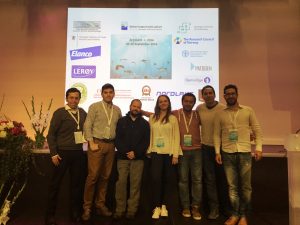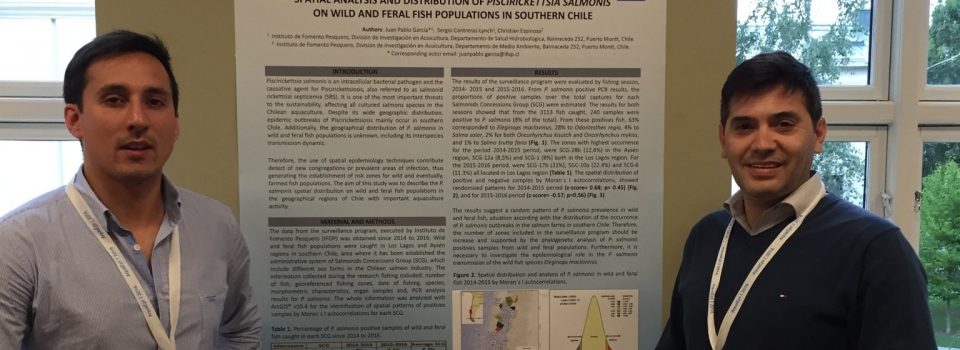Congress in Oslo Norway on epidemiology of aquatic organisms was carried out
September 29th, 2016
Researchers of IFOP, Sergio Contreras and Juan Pablo Garcia attended to the Congress
Between September 20 and 22, it was held in Oslo, Norway, the 1st Global Conference on Aquatic Organisms Epidemiology AquaEpi l 2016
The activity was organized by the Norwegian Veterinary Institute with the support of the Government of Norway. It is a global conference at delegations from around the world
The activity was organized by the Norwegian Veterinary Institute with the support of the Government of Norway. It is a global conference, so delegations around the world participated.
The main topics discussed were related to the use of tools in epidemiology of aquaculture, mainly, optimization of the use of epidemiological data; design and evaluation of studies of risk factors; molecular epidemiology; temporal and spatial patterns of prevalence and risk mapping; corrections in the diagnosis; design and evaluation of surveillance and control programs; risk analysis.
Sergio Contreras, veterinarian and head of Hydro biological Health Department of IFOP said “our presented work refers to characterize and analyze spatially the results of the surveillance program in wild and feral species we conducted for 6 years, in particular, the spatial distribution of positiveness of the causative agent of Piscirickettsiosis in the space environment where salmon farming is developed.
The idea is to deepen the study of the relationship between the two types of populations (free-living and farming) regarding the presentation of positive reactions and possible implications of this interaction in the transmission or maintenance of the disease in farming systems.
Our department performs monitoring programs of high-risk diseases from wild and feral species from La Araucania region to Magellan region, in bodies of freshwater and sea water. On the other hand, a program of surveillance of bacterial resistance in salmon farming is being developed recently. Both are permanent programs of ASIPA studies portfolio.
Our assistance as a team to this first conference allowed us to personally interact with leading scientists and researchers from these areas, in order to exchange and share experiences and results of various epidemiological studies in aquatic animals. It provided us with a platform for discussion about how to meet the research needs of the sector and facilitate interaction with the different interested parties, industry, researchers and regulator organism for possible future collaborations. ”
Juan Pablo Garcia, veterinarian and researcher of Hydro biological Health Department said about the work presented at the conference: “Progress of epidemiological tools have allowed us to evaluate spatial and temporal occurrence of Piscirickettsiosis in wild populations, allowing us to analyze more precisely and dynamic way the monitoring system. Our work seeks to determine possible spatial patterns of bacteria presence, in order to establish surveillance zones most at risk and to better understand the interaction between different species.”
